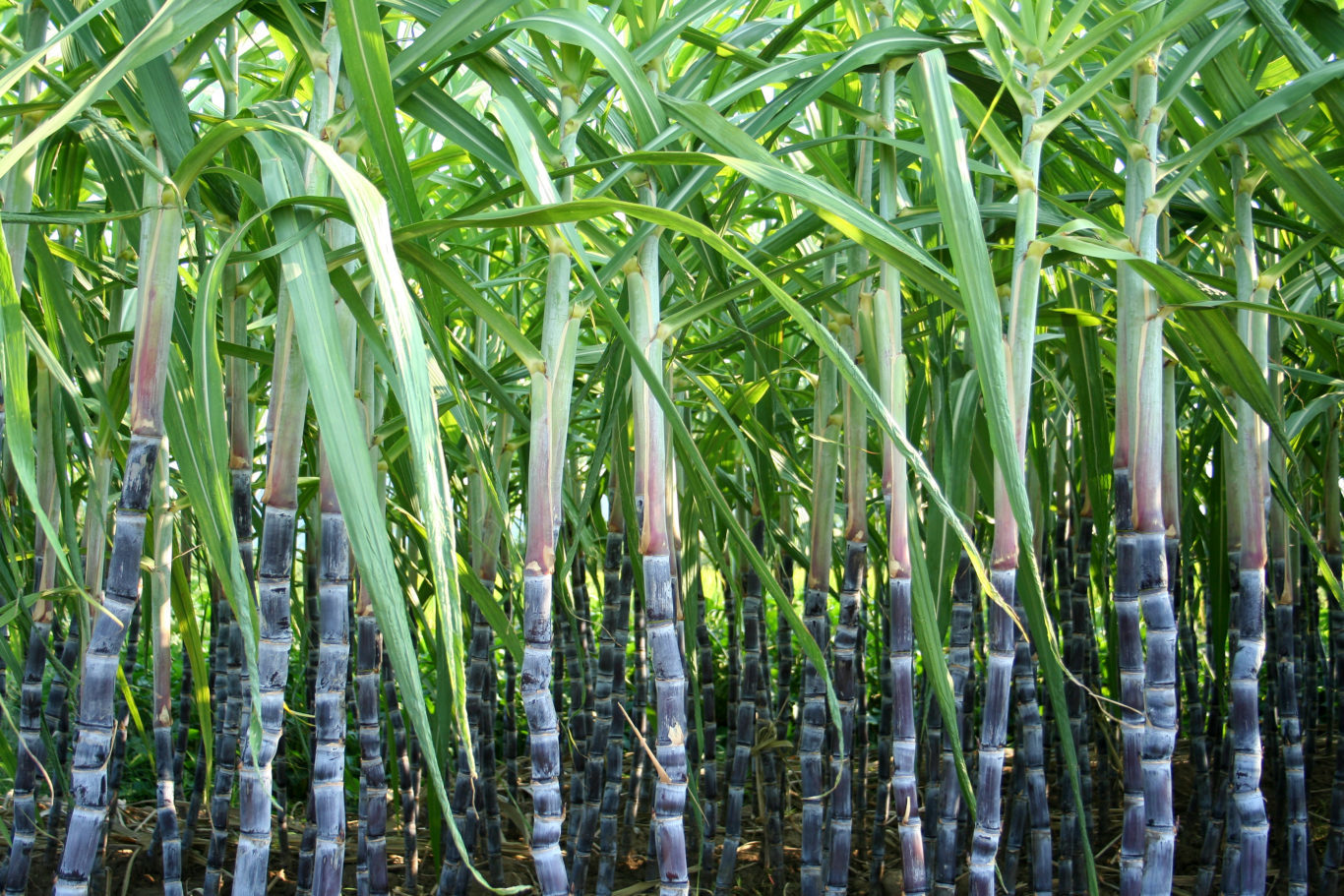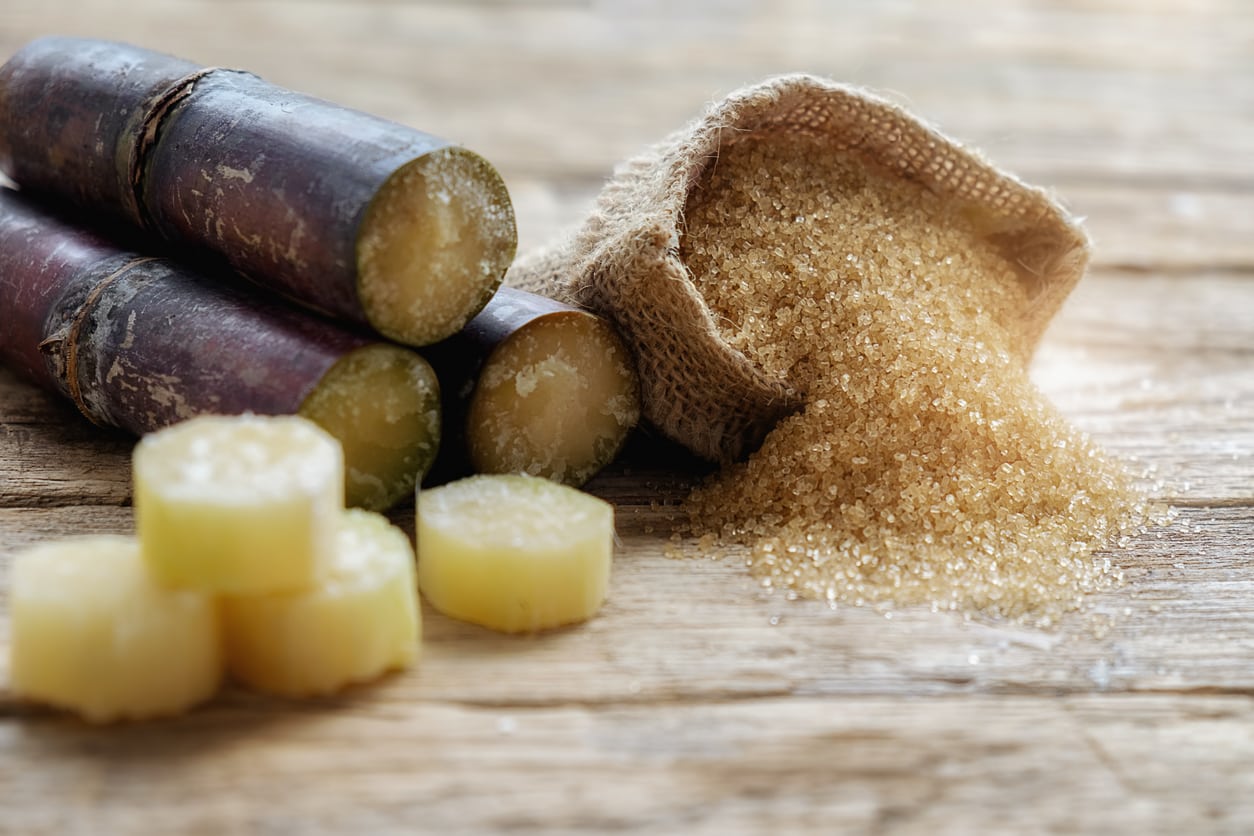Discovering the Perks of Cane Sugar Handling Chemicals for Sustainable Practices
The integration of specialized handling chemicals in walking stick sugar manufacturing presents a compelling possibility for progressing sustainable methods within the industry. These chemicals not only boost removal effectiveness and item quality however additionally contribute to substantial decreases in resource intake and environmental influence.

Introduction of Walking Stick Sugar Processing
Walking cane sugar handling involves a series of intricate actions developed to remove and improve sucrose from sugarcane. This process starts with harvesting the sugarcane, which is typically done by cutting the stalks short. sugar and cane. When collected, the walking stick is transported to a handling center, where it goes through cleaning and shredding to prepare it for juice extraction
The following action involves squashing the shredded cane to release the juice, which includes dissolved sucrose in addition to numerous contaminations. This juice is after that made clear, often via home heating and the enhancement of lime, to get rid of solid contaminations and obtain a clearer liquid. The cleared up juice is ultimately evaporated to focus the sugar material, causing a syrup.
The raw sugar is additional refined through procedures such as washing and drying, inevitably producing the final item that is ideal for consumption. Each action in this extensive procedure is essential for guaranteeing top quality walking stick sugar, highlighting the complexity and accuracy fundamental in sugar manufacturing.
Function of Processing Chemicals

Using processing chemicals is indispensable to the reliable removal and purification of sucrose during cane sugar manufacturing. These chemicals offer several features, including improving the clarity of juice, enhancing removal rates, and assisting in the elimination of pollutants. Trick handling chemicals include phosphoric acid, which assists in the clarification process, and calcium hydroxide, which reduces the effects of acidity and aids in the precipitation of pollutants.
Furthermore, refining chemicals can enhance the general yield of sugar by making certain maximum sucrose removal from the walking stick. Chemical therapies are also acquiring importance, as they can break down complicated carbohydrates right into fermentable sugars, thus raising efficiency. The application of these chemicals not just enhances the production processes yet also makes sure that the resulting sugar fulfills rigorous quality standards.
Furthermore, the function of processing chemicals includes improving operational efficiency by decreasing the energy and water required during processing. This not just adds to cost savings but additionally straightens with broader sustainability objectives within the sugar industry. By enhancing the function and recognizing of these chemicals, makers can enhance production performance while keeping product high quality and safety criteria.
Ecological Benefits
Lasting sugar production not only improves functional efficiency yet likewise offers substantial environmental advantages that add to a healthier community. The usage of handling chemicals developed for sustainability aids reduce the environmental footprint of sugar production. These chemicals usually allow the decrease of unsafe by-products, fostering a cleaner production process that shields regional waterways and dirt quality.
Additionally, sustainable techniques in walking stick sugar handling enhance biodiversity. By minimizing chemical drainage and pollutants, these approaches protect environments and advertise the health of bordering vegetation and fauna. The application of green chemicals often causes much better source management, as they can facilitate making use of natural waste items as fertilizers, thus shutting the nutrient loophole and enriching the soil.
Inevitably, these advancements not just sustain the sugar sector's ecological objectives website here however additionally align with international campaigns intended at combating climate modification and promoting sustainability. Welcoming these methods is important for the long-term viability of sugar manufacturing and the defense of our world's sources.
Effectiveness and Waste Reduction
Applying lasting methods not only boosts ecological end results however also drives efficiency and waste reduction in walking stick sugar handling. The integration of specialized processing chemicals can considerably optimize manufacturing process, decreasing the power and water intake typically connected with standard methods. Enzymes tailored to enhance sugar removal can lessen the amount of raw product needed, resulting in reduced operational costs and lessened waste generation.
Additionally, by utilizing eco-friendly or non-toxic processing representatives, producers can minimize the danger of wastewater contamination, causing lowered therapy requirements and more conserving sources (sugar and cane). Structured processes made it possible for by these chemicals can also boost the recovery rates of sugar, which not just maximizes result but likewise lowers the volume of spin-offs that call for disposal
Additionally, implementing real-time tracking modern technologies along with handling chemicals permits for better control over operational specifications, promoting quick modifications that can protect against inefficient deviations. In general, the calculated application of cane sugar processing chemicals find this advertises an all natural strategy to manufacturing efficiency, aligning economic feasibility with lasting techniques that profit both manufacturers and the setting.
Enhancing Item Top Quality

Furthermore, the application of pH regulators can enhance the processing conditions, ensuring that the sugar maintains its preferable flavor account while reducing the development of undesirable spin-offs (sugar and cane). This not just improves the general high quality yet also prolongs the life span of the sugar, satisfying the needs of both customers and sellers
Additionally, the implementation of these chemicals is frequently straightened with sustainable methods, lowering the environmental influence of sugar production while improving item quality. By using naturally degradable and green processing agents, makers can boost their market appeal and contribute to sustainable market requirements.

Final Thought
In final thought, the assimilation of specialized walking stick sugar handling chemicals provides significant benefits for lasting techniques within the industry. Inevitably, such eco-friendly services line up item quality with sustainability goals, developing a framework for efficient and accountable sugar manufacturing.
The combination of specialized processing chemicals in cane sugar production provides an engaging opportunity for advancing sustainable techniques within the market. Each step in this substantial procedure is vital for guaranteeing high-grade walking cane sugar, highlighting the intricacy and precision fundamental in sugar manufacturing.
The usage of handling chemicals is indispensable to the efficient extraction and purification of sucrose during walking cane sugar production. The use of specialized processing chemicals can substantially boost the pureness, shade, and preference of sugar products.In conclusion, the combination of specialized cane sugar processing chemicals provides considerable benefits for sustainable methods within the industry.